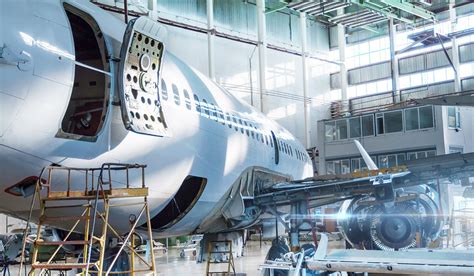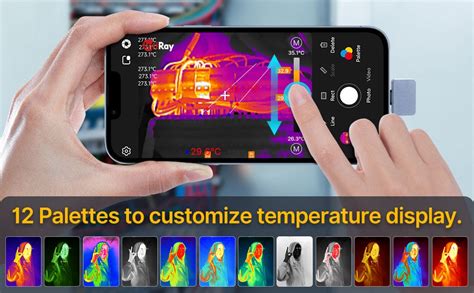The world of technology is rapidly evolving, and two areas that are making significant waves are heat and sensor technology. These advancements are transforming industries and revolutionizing the way we live and work. From improving energy efficiency to enhancing safety protocols, the impact of advanced heat and sensor tech is being felt across the globe.
In recent years, there has been a significant shift towards the development of more efficient and sustainable technologies. One area that has seen tremendous growth is heat management. Advanced heat transfer materials and techniques are being used to improve the performance of various systems, from electronics to industrial processes. For instance, high-performance thermal interface materials (TIMs) are being used to enhance the cooling of electronic devices, reducing the risk of overheating and improving overall efficiency.

Sensor technology is another area that is experiencing rapid growth. Advanced sensors are being used in a wide range of applications, from industrial automation to medical devices. These sensors are capable of detecting even the slightest changes in temperature, pressure, and other environmental factors, allowing for real-time monitoring and control. For example, temperature sensors are being used in the aerospace industry to monitor engine performance and prevent overheating.
Applications of Advanced Heat and Sensor Tech
The applications of advanced heat and sensor tech are diverse and widespread. Some of the most significant areas of impact include:
Energy Efficiency
Advanced heat management techniques are being used to improve the energy efficiency of buildings and industrial processes. For instance, high-performance insulation materials are being used to reduce heat loss in buildings, while advanced heat exchangers are being used to recover waste heat in industrial processes.
Industrial Automation
Advanced sensors are being used in industrial automation to improve process control and monitoring. For example, temperature sensors are being used to monitor the temperature of industrial processes, while pressure sensors are being used to monitor pressure levels in pipelines.
Medical Devices
Advanced sensors are being used in medical devices to improve patient monitoring and diagnosis. For instance, temperature sensors are being used to monitor patient temperature, while pressure sensors are being used to monitor blood pressure.
Aerospace
Advanced heat and sensor tech is being used in the aerospace industry to improve engine performance and safety. For example, temperature sensors are being used to monitor engine temperature, while pressure sensors are being used to monitor fuel pressure.

Benefits of Advanced Heat and Sensor Tech
The benefits of advanced heat and sensor tech are numerous and significant. Some of the most notable benefits include:
Improved Energy Efficiency
Advanced heat management techniques can help reduce energy consumption and improve energy efficiency. This can lead to significant cost savings and a reduced carbon footprint.
Enhanced Safety
Advanced sensors can help improve safety protocols by detecting potential hazards and preventing accidents. For example, temperature sensors can detect overheating in electronic devices, while pressure sensors can detect changes in pressure levels.
Increased Productivity
Advanced heat and sensor tech can help improve productivity by optimizing industrial processes and reducing downtime. For instance, advanced sensors can detect changes in temperature and pressure, allowing for real-time monitoring and control.
Improved Accuracy
Advanced sensors can provide more accurate readings than traditional sensors, allowing for more precise monitoring and control. This can lead to significant improvements in product quality and reduced waste.

Challenges and Limitations
While advanced heat and sensor tech has the potential to transform industries, there are also several challenges and limitations that need to be addressed. Some of the most significant challenges include:
High Cost
Advanced heat and sensor tech can be expensive, making it inaccessible to many companies and individuals. This can limit the adoption of these technologies and hinder their widespread use.
Complexity
Advanced heat and sensor tech can be complex, requiring specialized knowledge and expertise to design, install, and maintain. This can make it difficult for companies to integrate these technologies into their operations.
Interoperability
Advanced heat and sensor tech can have interoperability issues, making it difficult to integrate with existing systems and technologies. This can limit the flexibility and scalability of these technologies.
Security
Advanced heat and sensor tech can have security risks, particularly in industries where data is sensitive or critical. This can make it difficult to ensure the security and integrity of data.

Future Developments
The future of advanced heat and sensor tech looks promising, with several developments on the horizon. Some of the most significant future developments include:
Integration with AI and Machine Learning
Advanced heat and sensor tech is likely to be integrated with AI and machine learning algorithms, allowing for real-time monitoring and control. This can lead to significant improvements in efficiency and productivity.
Development of New Materials
New materials are being developed that can improve the performance of advanced heat and sensor tech. For example, graphene is being used to develop high-performance thermal interface materials.
Increased Adoption in Emerging Markets
Advanced heat and sensor tech is likely to see increased adoption in emerging markets, particularly in industries such as manufacturing and healthcare.
Development of New Applications
New applications are being developed for advanced heat and sensor tech, particularly in areas such as energy storage and renewable energy.






What is advanced heat and sensor tech?
+Advanced heat and sensor tech refers to the use of advanced materials and technologies to improve the performance of heat management and sensor systems.
What are the benefits of advanced heat and sensor tech?
+The benefits of advanced heat and sensor tech include improved energy efficiency, enhanced safety, increased productivity, and improved accuracy.
What are the challenges and limitations of advanced heat and sensor tech?
+The challenges and limitations of advanced heat and sensor tech include high cost, complexity, interoperability issues, and security risks.
